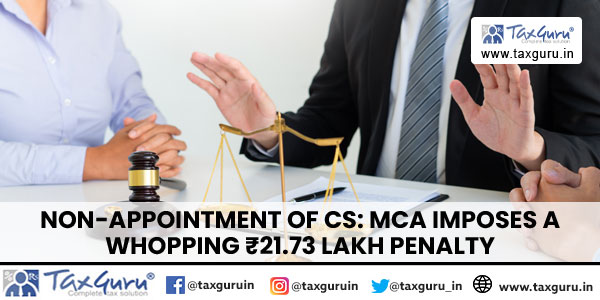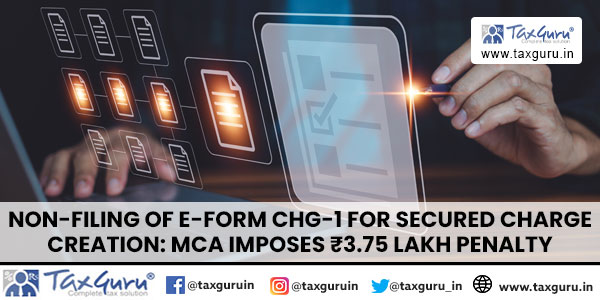Case Law Details
Shri Ashish Bansal has in the end submitted, the assessee could not have been asked to explain the source of the source i.e. the assessee could not have been saddled with liability if the minors who advanced the money to the assessee could not explain the source of their receipts. We are not impressed by this submission either. We cannot loose sight of the fact that the minors in question were children of the partners in the firm and therefore, it had to be the partners who would have both arranged the gifts and also made the decisions to introduce money into the firm in name of the minors. It was therefore for them to have established the genuineness of the transaction as otherwise, in such circumstances, it would be to allow assessee’s to place the minors in between themselves and the firm to escape the consequences in law by citing the rule – revenue cannot look into the source of the source.
Full Text of High Court Judgment
This income tax appeal under Section 260A of the Income Tax Act, 1961 has been filed by the assessee against the order of Income Tax Appellate Tribunal dated 11.05.2007 in respect of penalty proceedings under Section 271 (1) (c) of the Income Tax Act, 1961 (herein after referred to as the ‘Act’) for the Assessment Year 1990-91.
Brief facts of the case are that in the course of regular assessment proceedings for the assessment year 1990-91, the Assessing Officer made additions of Rs. 2,39,000/- being cash credit entries found standing in the the assessee’s books in the names of minor sons of the partners of the assessee firm. These were disbelieved to the extent the said minors were held to be in receipt of bogus gifts from complete strangers. Also, the Assessing Officer made addition on account of another cash credit appearing in the books of account of the assessee by way of loan of Rs. 50,000/- from one Sri Vikash Kumar Poddar.
Upon appeal, in the quantum proceedings, the Tribunal confirmed the addition of Rs. 2,89,000/-. It has been stated by Sri Ashish Bansal that in quantum matter the additions so made were affirmed by this Court inasmuch as the asseess’s IT Appeal No. 82 of 2006 was dismissed by this court on 03.11.2009.
Occasioned by confirmation of the additions by the Tribunal, the Assessing Officer thereafter initiated penalty proceedings on 26.08.2005 under Section 271 (1) (c) of the Act. Admittedly, the assessee did not file any explanation or reply to the aforesaid notice.
In such facts, the Assessing Officer invoked Explanation 1 to Section 271 (1) (c) of the Act and imposed penalty of Rs. 2,00,000/- as against minimum penalty imposable Rs. 1,69,886/-. Since it was a case of no explanation the penalty has been imposed on that basis alone.
Upon, appeal the assessee did furnish explanation before the CIT (Appeals), which authority passed the order dated 03.11.2006 and rejected the explanation furnished and observed first, in respect of the cash credit of Rs. 2,39,000/- that the parents of the minors (who claimed to have given money to the firm) and who were themselves partners in the firm were examined by the A.O. in respect of genuineness of the gifts claimed in the accounts of the minors for the purpose of making the advances to the firm. They could not give any worthwhile details of the alleged donors and their relationship with the donees. Even in the proceedings before the CIT (Appeals), Shri Ravi Shankar Jhunjhunwala, one of the partners (and a parent) who appeared conceded that the donors were not related and that such donors were friends of relatives and that the details of such friends of relatives who had made the gifts as an organized activity of the parents of the minors, who are the partners of the firm. Clearly, according to the CIT (Appeals) receipt of gifts from total strangers was a device to introduce unaccounted money in the names of minor children as well as in their own personal names.
In further appeal the Tribunal again after considering the facts and circumstances of the case, observed and recorded its finding in the following terms:-
“We have considered the rival submissions and perused the material on record. It has to be seen on the facts of the case whether Explanation 1 to Section 271(1)(c) is applicable. The facts have been elaborated by us, but at the cost of repetition, certain important and relevant facts are necessary to be referred to again. Gifts were received in the accounts of the minors through their guardians who were their fathers and were transferred to the firm through account payee cheques. It has been found as a fact that the donors were totally strangers. They did not have any relationship or friendship or business connection with the assessee or the partners or with the minors. Money was deposited in cash for purchase of drafts, which were deposited in the account of minors. The unknown donors had assembled practically on the same day to connections between the alleged donors and the minors, their guardians and the firm. The Assessing Officer had found as a fact that the explanation furnished by the assessee about credits is false as referred to in paragraph 10 of his order.”
The Tribunal has however, reduced the penalty from Rs. 2,00,000/- to Rs. 1,69,886/- being the minimum penalty imposable.
We have heard Sri Ashish Banshal, learned counsel for the assessee and Sri Manu Ghildyal, learned counsel for the department and have perused the record.
This appeal had been admitted on the following questions of law:-
“1. Whether the view taken by the ITAT that the assessee is guilty of concealment of income is not vitiated as the same has been arrived at without considering the entire evidence and material on record?
2. Whether there existed any material which could go to show that the additions made in the assessment of the assessee represented the concealed income of the assessee within the meaning of Section 271(1)(c) of the Act and levy of penalty with reference to the same is justified in law and on facts?
3. Whether on the facts and circumstances of the case, which remained uncontroverted also, the Tribunal was legally correct in holding that the assessee had failed to discharge its onus that lied on it and accordingly it was liable for penalty under section 271(1) (c)?
4. Whether the view taken by the ITA T in the matter of leviability of penalty under section 271(1)(c) which are in the nature of quasi criminal proceedings, is not vitiated in law as the same has been arrived at without considering the relevant material and information on record, even though the same remained uncontroverted from the side of the Revenue?
5. Whether on the facts and circumstances of the case and on a true and correct interpretation of section 271(1)(c), the penalty levied/sustained therein is maintainable?”
We find that the assessee firm had disclosed certain amounts in its account which it claimed to have received from minor children of the partners of the firm. On being questioned as to the source of these funds at the hands of the minors, it was explained that funds to the extent of Rs. 2,39,000/- had been received by the minors by way of gifts received from strangers. Similarly, Rs 50,000/- was credit appearing in the account as a loan from one Vikas Kumar Poddar.
However, the assessee could not substantiate the claim of the gifts claimed to have been received by the minors and the same was taken to be unaccounted cash of the firm introduced by disclosing it as unsecured loan. Also, it could not establish the genuineness of the loan standing in the name of Vikas Kumar Poddar.
In the penalty proceedings, it is admitted that the assessee did not offer any explanation before the Assessing Officer. Thus, the Assessing Officer had rightly invoked Explanation 1 to section 271 (1 )(c) of the Act which reads as below:-
“Explanation 1.__ Where in respect of any facts material to the computation of the total income of any person under this Act. (A) such person fails to offer an explanation or offers an explanation which is found by the [Assessing] Officer or the [***] [Commissioner (Appeals)] [or the [Principal Commissioner or] Commissioner] to be false, or.”
Upon appeal, the assessee appears to have offered an explanation which was considered and disbelieved by the CIT (Appeals) for reasons given by him which we have referred to above. Also, that authority noted as under :
“As regards the creditors, Shri Vikash Kumar Poddar, provisions of Section 68 are squarely applicable as in that case the availability of cash to make the alleged loan has not been established. The contumacious conduct of the appellant introducing the impugned sums as alleged gifts to the minors or cash credit can be seen very clearly.”
The burden was on the assessee to furnish such explanation and to lead evidence to establish the truthfullness and correctness of the same . Inasmuch as the assessee did not furnish any explanation at the original stage and the explanation furnished by him, subsequently in appeal was disbelieved in as much as the appeal authority concluded that the factum of gift given by different persons-all strangers to the minor children of the partners that too all through cash drafts purchased from same banks, apparently to enable them to give loans to the firm in which the parents of such minors were partners, was only a device.
The said line of reasoning and findings recorded by the CIT (Appeals) cannot be faulted as same is based on evidence found in this case. We have not been shown any material on the basis of which it may be said that the Appellate Authority had drawn the conclusion without any evidence or material on record. The nature of transaction being such that assessee alone could have had knowledge of the special facts claimed by him to have existed. In absence of any evidence to substantiate his claim, the authorities have rightly disbelieved the explanation furnished at the stage of appeal proceedings.
Shri Ashish Bansal has in the end submitted, the assessee could not have been asked to explain the source of the source i.e. the assessee could not have been saddled with liability if the minors who advanced the money to the assessee could not explain the source of their receipts. We are not impressed by this submission either. We cannot loose sight of the fact that the minors in question were children of the partners in the firm and therefore, it had to be the partners who would have both arranged the gifts and also made the decisions to introduce money into the firm in name of the minors. It was therefore for them to have established the genuineness of the transaction as otherwise, in such circumstances, it would be to allow assessee’s to place the minors in between themselves and the firm to escape the consequences in law by citing the rule – revenue cannot look into the source of the source. Further, in the facts of the instant case, the question of examining the source of the source may have been an issue in the quantum proceedings in which as has been candidly stated by Shri. Bansal, the findings recorded against the assessee have attained finality. In the instant proceedings, the penalty was imposed because the assessee did not offer any explanation to the assessing officer in the first instance and then the penalty was sustained because his explanation furnished before the CIT(Appeals) was rejected. The provision of Explanation 1 to section 271 (1) (c) having been thus invoked, no further enquiry was required in the facts of this case.


























